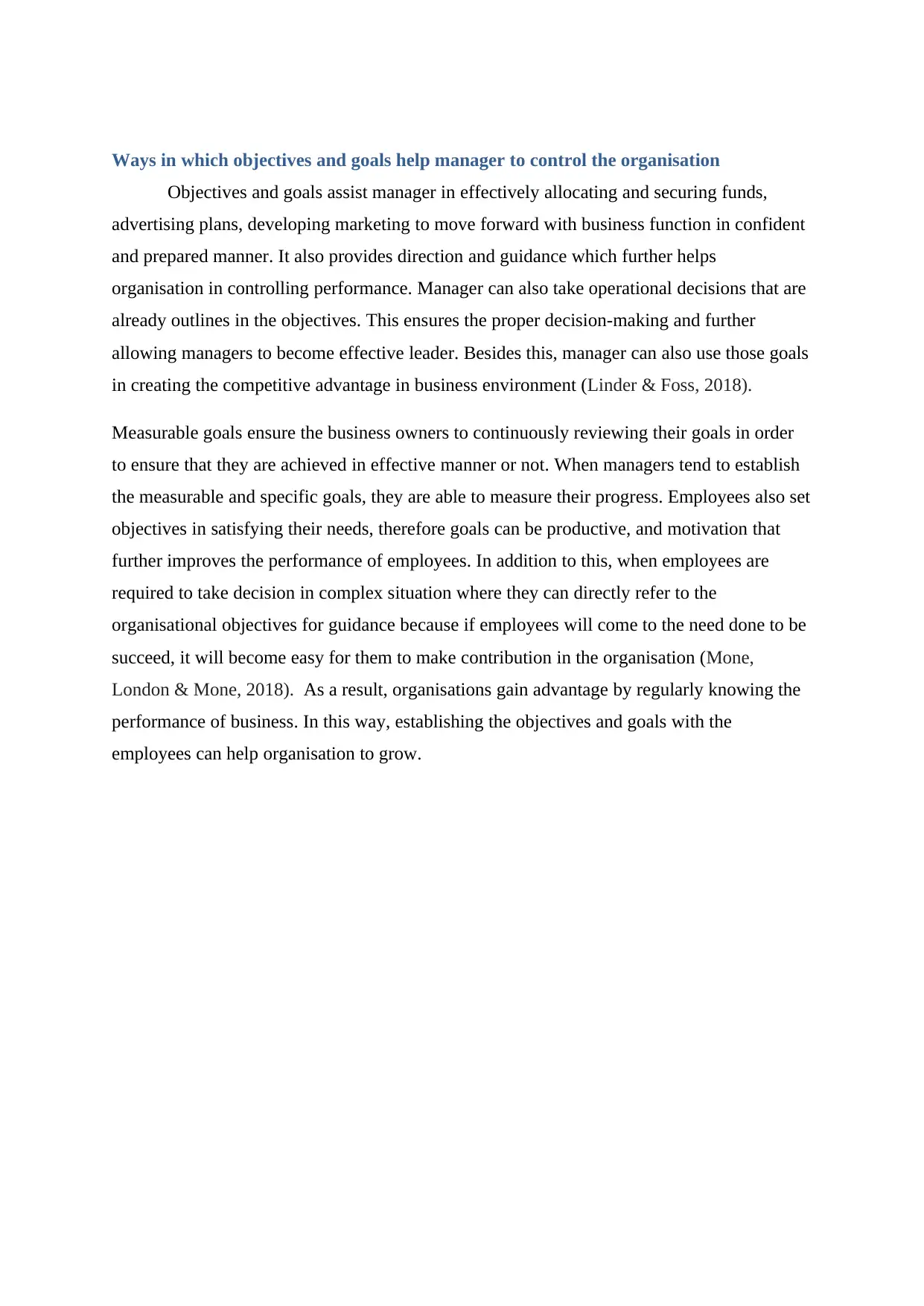HRM Objectives and Goals: Improving Management and Performance
VerifiedAdded on 2022/08/18
|3
|347
|16
Homework Assignment
AI Summary
This assignment explores the crucial role of HRM objectives and goals in effective management and leadership. It highlights how these objectives facilitate performance control, guide decision-making, and foster employee engagement. The document emphasizes the importance of measurable goals in assessing progress and achieving business objectives. It also discusses how well-defined goals provide a framework for employees to contribute effectively, leading to organizational growth and competitive advantage. The assignment references key sources such as Linder & Foss (2018) and Mone, London & Mone (2018) to support its arguments, offering a comprehensive overview of how HRM strategies can be leveraged to enhance organizational outcomes.
1 out of 3










![[object Object]](/_next/static/media/star-bottom.7253800d.svg)